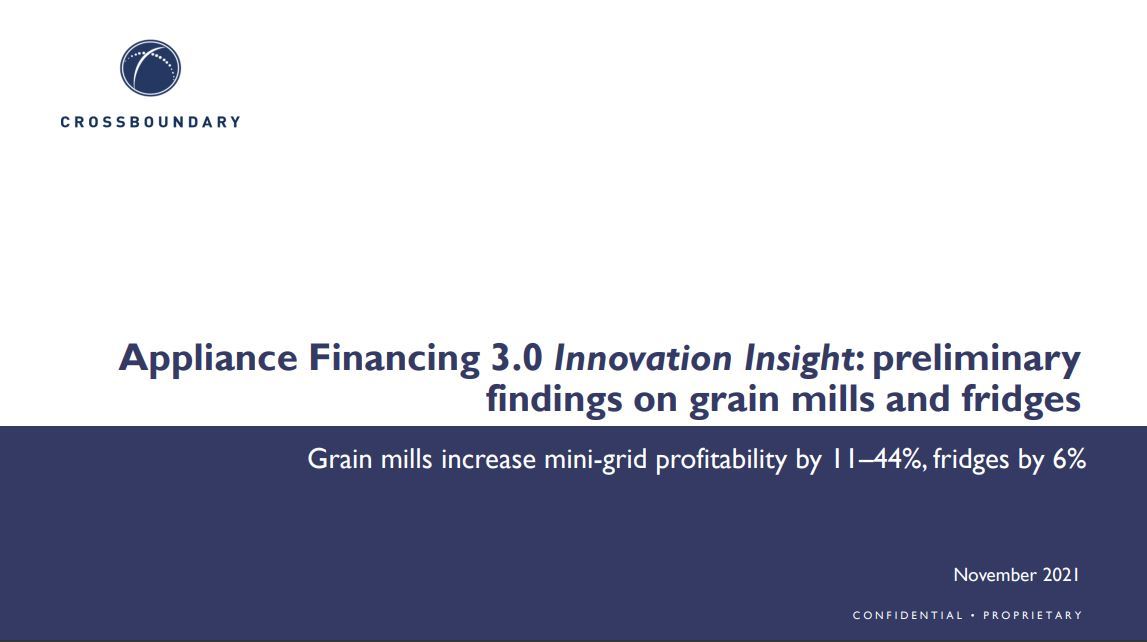CrossBoundary Energy’sInnovation Lab has published a report on the impact of grain mills and fridges on mini-grid profitability, the latest in a series of insight papers testing business model innovations for the sector.
The Innovation Lab is the first research and development fund exclusively focused on testing new business model innovations for mini grids. The Lab uses an iterative testing process to brainstorm, design, test, analyse, iterate, and then scale solutions that could provide African businesses and households with more power at less cost.
 Shell Foundation has supported the lab, co-funded with UK aid from the UK government, to provide early insights on prototype models and technologies so mini-grid developers, governments, and funders can act on the results as they emerge.
Shell Foundation has supported the lab, co-funded with UK aid from the UK government, to provide early insights on prototype models and technologies so mini-grid developers, governments, and funders can act on the results as they emerge.
The design, experiments and data analysis are supported by Energy 4 Impact, University of Massachusetts Amherst, Rochester Institute of Technology, and Duke University.
Appliance Financing 3.0 is the third publication of the Innovation Insight series, the Lab having previously tested household appliances such as TVs, fridges, and speakers in Appliance Financing 1.0, and productive use appliances, such as grain mills and welders, and payment platforms in Appliance Financing 2.0.
Download Appliance Financing 3.0 (external link)
Appliance Financing 3.0 presents the results of mini-grid profitability from sites in Kenya, Tanzania, and Nigeria. The publication shares three key, high-level findings:
- The top 20% of customers, who use income-generating machines like grain mills and fridges, account for 80% of consumption
- Electric-powered agricultural machines such as grain mills can increase mini-grid profitability by 11%. Converting all diesel mills to electric mills could increase a mini-grid’s profitability by 44%. However, electric mills are not always competitive with diesel mills on performance, hindering uptake
- Commercial equipment such as fridges increase mini-grid profitability by 6%. High quality power is critical as commercial customers have zero tolerance for poor reliability


